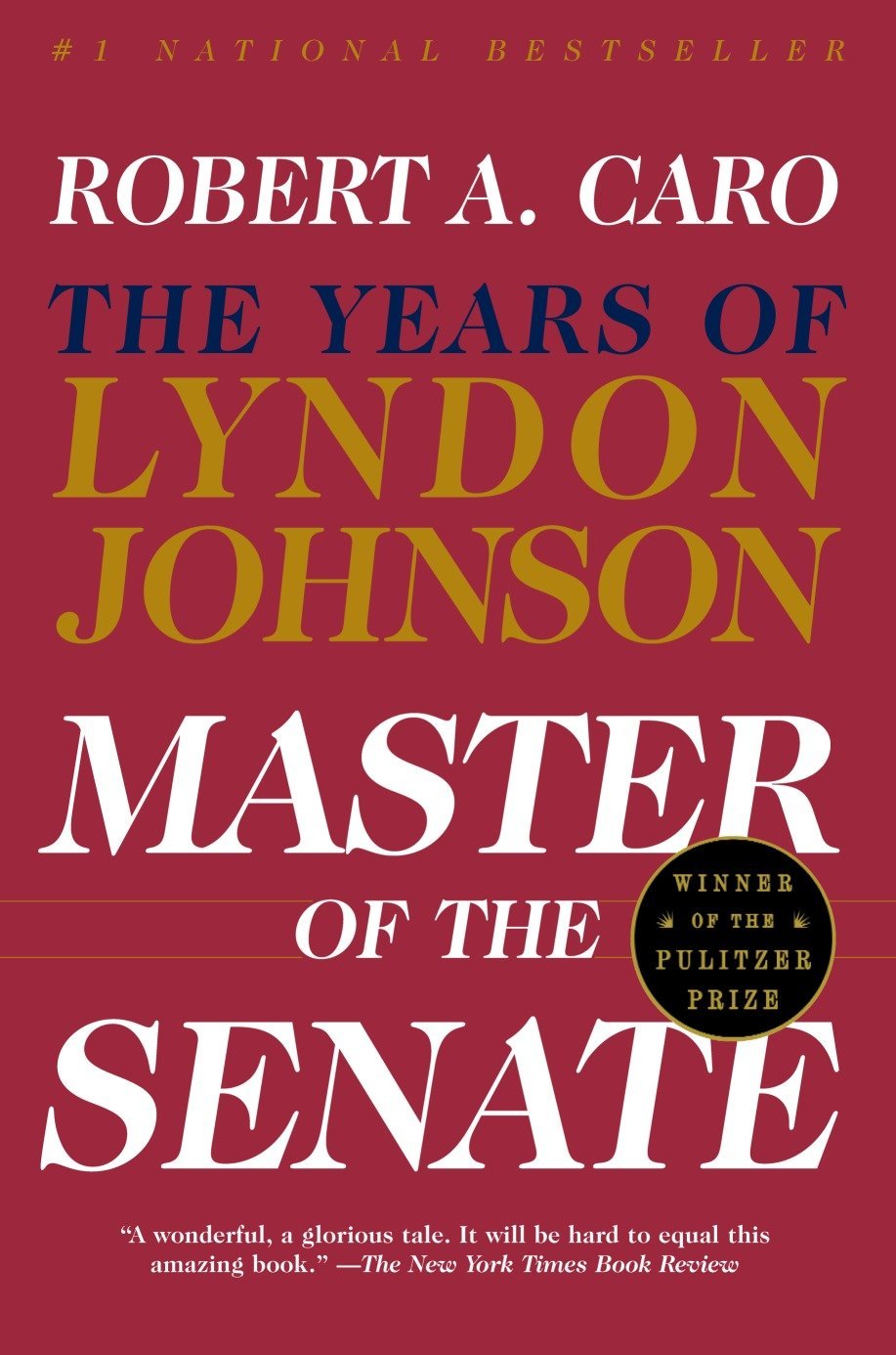
Master of the Senate
I’m going to dispense with the usual reverence for Caro — not because I don’t think this book merits it, but because I think I’ve covered that enough in my postscripts to Path to Power ↗ and Means of Ascent ↗.
Instead, I think it’s most interesting to talk about what this book does differently than the previous two in the series.
The first and most obvious is its setting, and Caro’s obvious reverence for the institution: the first fifth or so of the book is just a history of why the Senate matters. This felt like a rhyme with his exegesis on the hill country, and whereas those matters were rooted in fact and blood this felt a little — I don’t know, maybe presumptive? You very much got the sense that Caro wanted everyone to care about the Senate not because of what it did but because of what it represented, and while I think his narrative was compelling his argument was less so. (This is perhaps a Caro-ism; his arguments are strongest when he doesn’t make them, and lets the facts speak for themselves.)
This was also the most temporally circuitous of Caro’s books thus far — we have broad overtures towards a timely structure (history; maiden speech; ascension; Civil Rights) but there’s a fair deal more bopping around from decade to decade, largely because the ancillary characters we talk about here have such depth and history to them.
Caro does such a good job investing you in specific floor flights and mechanics. He made the minutiae gripping and thrilling, and I think the main thing he wanted to convey with a lot of it was twofold:
- For all the positioning of the Senate as a serene and august institution it was also a bit of a middle school lunch.
- LBJ was damn good at this stuff, in both big and abstract ways and also the little ones.
I loved this book. I am being harsh in this review compared to the other two because when you take away the “why Caro?” you are left with “why this Caro?” and that’s a bit trickier to answer. Read this book; read them all.
© 2023 Justin Duke • I hope you're wearing your favorite sweater.